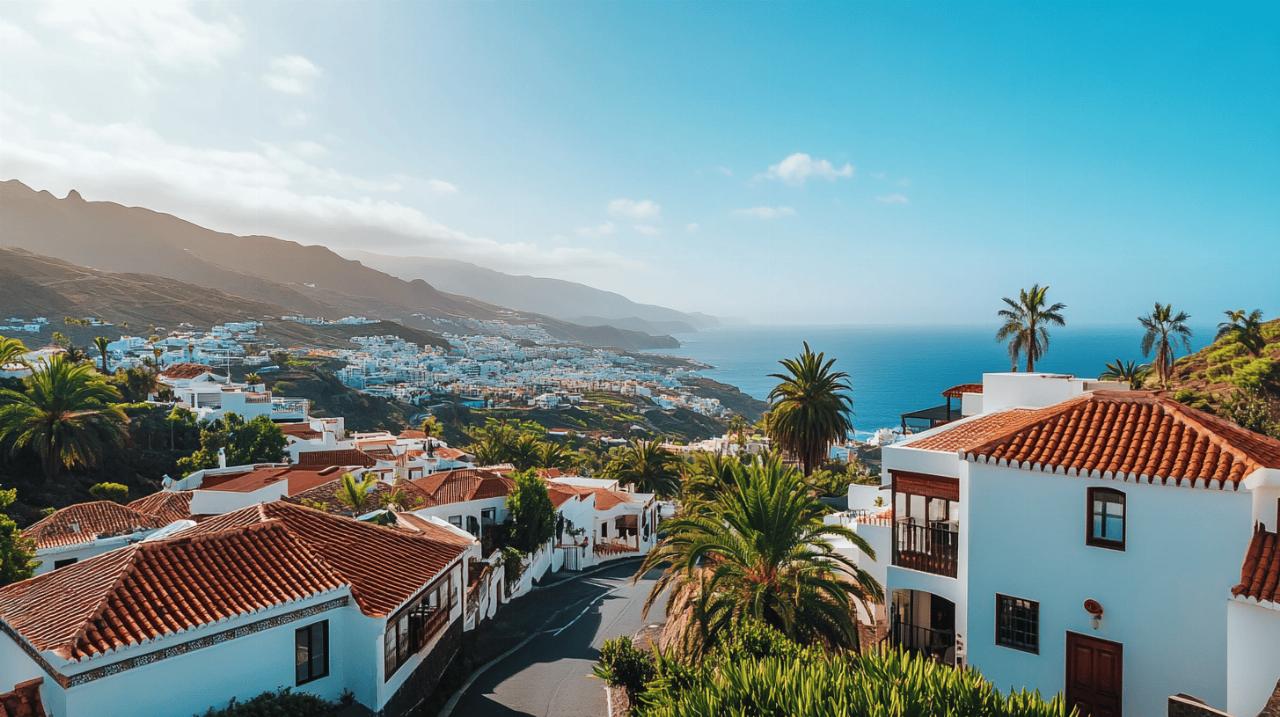The Canary Islands have emerged as a captivating destination for property investors seeking sunshine, stability, and substantial returns. With their unique combination of year-round pleasant climate, stunning landscapes, and vibrant lifestyle, these Spanish islands off the northwest coast of Africa are attracting a growing number of international investors. This article explores the current property market landscape and essential considerations for those looking to invest in this archipelago paradise.
Current market trends in canary islands property
The Canary Islands property market is experiencing remarkable growth in 2025, with values increasing by 47% over the past five years. According to Canary Island Property World, this upward trajectory is expected to continue with predictions of an additional 8-12% increase throughout 2025. This robust performance stems from a perfect storm of factors including tourism recovery, tax advantages, and the islands' growing popularity among digital nomads and remote workers seeking an idyllic lifestyle with modern amenities.
Price variations across different islands
Property prices across the archipelago show significant variation based on location and development. Currently, the average price per square metre ranges from €2,800 to €3,300, though this figure fluctuates considerably between islands and even within different regions of the same island. Tenerife and Gran Canaria command premium prices, particularly in tourist hotspots like Costa Adeje and Maspalomas. Meanwhile, emerging areas such as Gáldar and Teror offer more affordable options for investors with modest budgets. The smaller islands like La Palma, El Hierro, and Fuerteventura are gaining attention as investment frontiers, with relatively lower entry prices but strong growth potential driven by ongoing infrastructure improvements and increasing tourism interest.
Types of Properties Available for Investment
The Canary Islands offer diverse property options to suit various investment strategies. Apartments represent the most accessible entry point, with prices starting around €150,000 for standard units and extending to €800,000 for luxury beachfront options. Detached houses and villas range from €250,000 to €2 million depending on location, size, and amenities. For developers and those looking to create bespoke properties, building plots are available from €100,000, with premium coastal locations commanding upwards of €500,000. The market has also seen growing demand for sustainable properties with green certifications such as BREEAM or LEED, particularly in Lanzarote where eco-friendly luxury developments are becoming increasingly popular. Short-term rental properties in tourist areas like Los Cristianos and Playa de las Americas continue to deliver strong returns, while long-term rental opportunities are expanding as digital nomads seek stable accommodations with reliable internet connectivity.
Key Considerations When Buying Property in the Canary Islands
 Investing in Canary Islands real estate requires careful planning and local knowledge. The total cost of property acquisition typically adds 10-12% to the purchase price, covering various taxes and fees. This additional expense is often underestimated by foreign buyers, according to market specialists. Another important factor is the property's location relative to amenities, transport links, and natural features like sea views, which significantly impact both rental yield potential and long-term capital appreciation. The islands' varied microclimates also merit consideration, as northern areas tend to be greener and slightly cooler, while southern regions offer more consistent sunshine – a crucial factor for holiday rental performance.
Investing in Canary Islands real estate requires careful planning and local knowledge. The total cost of property acquisition typically adds 10-12% to the purchase price, covering various taxes and fees. This additional expense is often underestimated by foreign buyers, according to market specialists. Another important factor is the property's location relative to amenities, transport links, and natural features like sea views, which significantly impact both rental yield potential and long-term capital appreciation. The islands' varied microclimates also merit consideration, as northern areas tend to be greener and slightly cooler, while southern regions offer more consistent sunshine – a crucial factor for holiday rental performance.
Legal requirements for foreign investors
Foreign buyers constitute approximately 70% of the Canary Islands property market, drawn by both lifestyle and investment potential. Non-Spanish investors must obtain a foreigner's tax identification number (NIE) before completing any purchase. Working with an independent lawyer is essential to navigate the legal complexities and avoid common pitfalls. Local experts emphasize the importance of thorough due diligence, including property registry checks and verification of planning permissions. From July 2025, new regulations for short-term rentals will require formal registration, impacting investors planning to enter the holiday rental market. Mortgage options are available to foreign buyers, typically covering 70-80% of the property value, with most lenders requiring a minimum 30% down payment. Interest rates and terms for non-residents differ from those offered to Spanish nationals, making financial pre-approval an important early step in the purchase process.
Tax implications and financial planning
The Canary Islands offer significant tax advantages compared to mainland Spain, making them particularly attractive to investors. New properties are subject to a 7% IGIC tax (Impuesto General Indirecto Canario) instead of the 10% VAT applied on the mainland. Resale properties incur a Property Transfer Tax (ITP) of 6.5%, which is also lower than equivalent mainland rates. Beyond purchase taxes, investors benefit from reduced ongoing property taxes and potentially favorable income tax treatment depending on residency status. The cost of living is approximately 15-25% lower than mainland Spain, with monthly expenses averaging €1,400-€1,500 for individuals and €2,800-€3,000 for families of four, excluding housing costs. Financial analysts note that mortgage payments are typically €200-600 less than rental costs for comparable properties, making buying financially advantageous for those planning to stay longer than three years. For investment property owners, professional property management services are available to handle maintenance and tenant relations, an important consideration for those not residing permanently in the islands.
